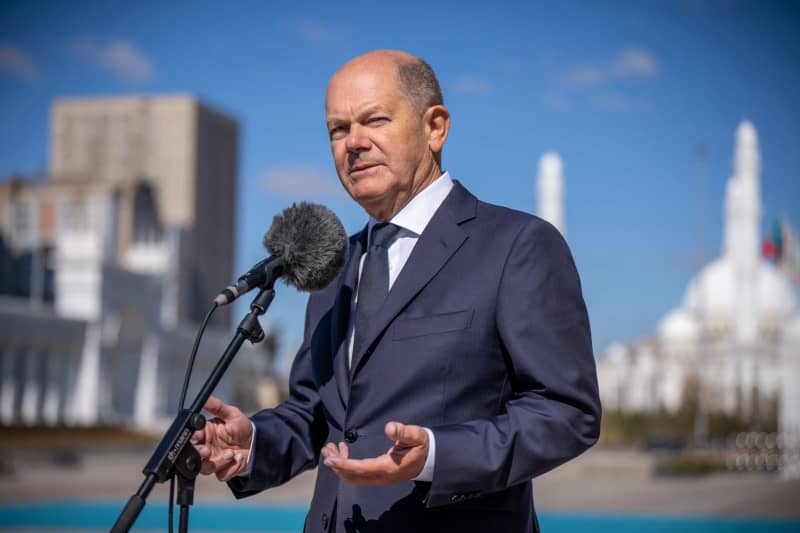German Chancellor Olaf Scholz on Tuesday described deepening ties with the republics of Central Asia as a “strategic goal for Germany” during his visit to Kazakhstan for a regional summit.
“Never before has the exchange between our societies been so close – and it is constantly increasing: politically, economically and culturally,” Scholz said in the Kazakh capital Astana. “We want to continue this and intensify it further.”
Scholz had concluded a strategic partnership with Kazakhstan, Uzbekistan, Kyrgyzstan, Tajikistan and Turkmenistan during the first summit of the five Central Asian countries a year ago.
“Especially in times of global uncertainty, we need close, reliable international partners,” says Scholz.
Kazakh President Kassym-Jomart Tokayev said that cooperation in the energy sector plays a “key role” in relations with Germany.
He also invited German companies to participate in the exploration of rare earth and other metal deposits in his country and in the extraction of lithium, which is vital for battery production.
Although the five countries, all former Soviet republics, maintain close ties with Russia, they are also trying to improve relations with Western countries to become less dependent on their powerful neighbor.
Together, the five countries have just under 80 million inhabitants, slightly less than Germany. However, their surface area is roughly equal to the territory of the entire European Union.
In recent decades, Germany has largely overlooked the region in favor of close economic ties with its two neighboring powers, China and Russia. But Russia’s large-scale military invasion of Ukraine has upended those relations.
Russia was Germany’s main energy supplier for a long time, but sanctions over the war in Ukraine led to a sharp drop in gas supplies and an energy crisis in Germany, where prices skyrocketed.
The fallout from the break with Russia has led Germany and other Western countries to consider reducing their economic dependence on China, in order to reduce the risk of becoming overly dependent on one country.
This has prompted the German government to explore closer partnerships with countries in Africa, Latin America and Asia.
Kazakhstan is Germany’s third largest oil supplier and is also a producer of uranium, iron ore, zinc, copper and gold.
The country is also seen as a potential partner for the production of hydrogen, which is produced from renewable energy sources and is seen as a potential climate-friendly fuel for the future.







